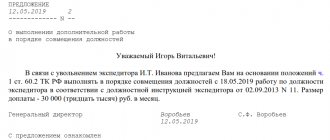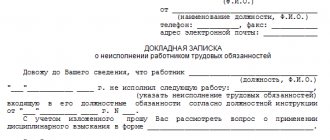Release from liability for breach of obligations
Is it possible to be exempt from fulfilling obligations due to the coronavirus pandemic?
Due to the coronavirus pandemic and the adoption of response measures by authorities, it has become impossible for many business entities to fulfill obligations under transactions.
It is obvious that the impossibility of fulfilling the obligations assumed was a consequence of circumstances beyond the control of the parties, and therefore the parties will need to determine the reasons and legal consequences of failure to fulfill obligations.
According to the general provisions of the Civil Code of the Russian Federation on liability for violation of fulfillment of obligations, a mandatory condition for bringing to responsibility when carrying out business activities is the presence of guilt.
In accordance with clauses 1, 2 of Art. 401 of the Civil Code of the Russian Federation, a person who fails to fulfill an obligation or fulfills it improperly is liable in the presence of guilt (intention or negligence), except in cases where the law or contract provides for other grounds for liability. The absence of guilt is proven by the person who violated the obligation.
At the same time, paragraph 3 of the above article provides that, unless otherwise provided by law or contract, a person who has not fulfilled or improperly fulfilled an obligation when carrying out business activities is liable unless he proves that proper fulfillment was impossible due to force majeure, then there are extraordinary and unavoidable circumstances under the given conditions. Such circumstances do not include, in particular, violation of obligations on the part of the debtor's counterparties, lack of goods on the market necessary for execution, or lack of necessary funds from the debtor.
Resolution of the Plenum of the Supreme Court of the Russian Federation dated March 24, 2016 N 7 “On the application by courts of certain provisions of the Civil Code of the Russian Federation on liability for violation of obligations” clarified the procedure for applying the above provisions of the Civil Code of the Russian Federation. Thus, it states that, by virtue of paragraph 3 of Article 401 of the Civil Code of the Russian Federation, in order to recognize a circumstance as force majeure, it is necessary that it be of an emergency and unavoidable nature under the given conditions.
The requirement of emergency implies the exceptionality of the circumstance in question, the occurrence of which is not usual in specific conditions. Unless otherwise provided by law, a circumstance is recognized as unavoidable if any participant in civil transactions carrying out activities similar to the debtor could not avoid the occurrence of this circumstance or its consequences. Circumstances the occurrence of which depended on the will or actions of the party to the obligation cannot be recognized as force majeure, for example, the debtor lacking the necessary funds, violation of obligations by its counterparties, unlawful actions of its representatives.
The occurrence of force majeure circumstances in itself does not terminate the debtor’s obligation if performance remains possible after they have ceased to exist. The creditor is not deprived of the right to withdraw from the contract if, due to a delay arising from the occurrence of force majeure circumstances, he has lost interest in performance. In this case, the debtor is not liable to the creditor for losses caused by delay in fulfilling obligations due to the occurrence of force majeure circumstances (clause 3 of Article 401, clause 2 of Article 405 of the Civil Code of the Russian Federation). The debtor is obliged to take all reasonable measures to reduce the damage caused to the creditor by a force majeure circumstance, including notifying the creditor of the occurrence of such a circumstance, and in case of failure to fulfill this obligation, to compensate the creditor for the losses caused by this (clause 3 of Article 307, clause 1 of Article 393 of the Civil Code of the Russian Federation ).
Based on the foregoing, it follows that the occurrence of forms of majeure circumstances is not an unconditional basis for exemption from liability under any obligation. Exemption from liability is possible only if the following conditions are met:
— the extreme, unpreventable nature of the circumstances;
— the occurrence of circumstances does not depend on the will of the parties;
- the debtor has taken all reasonable measures to reduce losses to the creditor.
Confirmation of the fact of force majeure is carried out by the Chambers of Commerce and Industry. In confirmation of force majeure, chambers of commerce and industry issue certificates, which are evidence during legal proceedings if the counterparty disputes the defendant’s arguments that the violation of the obligation was a consequence of force majeure circumstances.
(Read the full version of the article in the “Publications in the Media” section)
Responsibility for non-fulfillment or improper fulfillment of one’s obligations
For failure to fulfill or improper fulfillment of their obligations, the contractor and the consumer bear liability established by federal laws, these Rules and the agreement, if they have determined a higher amount of liability.
If the contractor is found to have violated the laws of the Russian Federation, these Rules and other legal acts, or failed to fulfill or improperly fulfilled contractual obligations, the contractor is liable in the form of:
payment of a penalty (fine, penalty) established by federal law or agreement;
compensation for harm caused to the life, health or property of the consumer due to deficiencies in housing and communal services, as well as information about them;
compensation for losses caused by failure to fulfill or improper fulfillment of its obligations;
compensation for moral damage.
The consumer's demands for payment of a penalty (fine) provided for by law or contract, and compensation for damage, are subject to satisfaction by the contractor voluntarily or by a court decision in the manner established by the legislation of the Russian Federation.
An agreement to limit the amount of liability of the contractor in a contract with a consumer, concluded before the occurrence of circumstances entailing liability for non-fulfillment or improper fulfillment of an obligation, is invalid regardless of such recognition by the court, if the amount of liability for such obligations or for violation of such contracts is determined by federal law.
Any agreements between the contractor and the consumer intended to limit or eliminate the property liability assigned to the contractor are considered invalid.
In case of non-provision or inadequate provision of electrical and thermal energy, gas, cold and hot water, provided for in the contract for the provision of housing and communal services, the consumer, at his choice, has the right:
pay for these utilities in a smaller amount in the next billing period according to the agreement; present to the contractor a requirement to recalculate fees for unprovided (or improperly provided) utility services, reflecting this in the payment document (notice, invoice receipt); to return to him the amount of money paid for utility services not provided or provided improperly in case of violation of the requirements for the quality of the provided utility services - electricity, heat, gas, water supply. Repeated cases of unlawful non-provision or improper provision of public services, their non-compliance with standards, making it impossible to use public services without causing harm to the life, health and property of the consumer, are considered significant shortcomings; in addition to the penalties listed earlier, also for compensation for actual damage caused to him as a result of the provision of utility services of inadequate quality (Article 15, 547 of the Civil Code of the Russian Federation).
The consumer's demands for recalculation of fees for utility services, as well as for compensation for losses caused to him, must be satisfied by the contractor no later than ten days, starting from the date of presentation of the corresponding demand.
In case of improper performance or non-performance of work (improper provision or failure to provide services) for maintenance and repair (current and major) of an apartment, house, including the common property of an apartment building, repair and operation of elevators, garbage chutes and other non-apartment engineering equipment, maintenance and cleaning inside the access and adjacent areas, collection and removal of household waste and others provided for in the agreement on the provision of housing and communal services, at the choice of the consumer:
a) pays for such work (services) in the next billing period in a smaller amount in accordance with the agreement;
b) presents to the performer one of the following requirements:
recalculate the payment for such work (services) with this reflected in the payment document (notice, invoice); eliminate deficiencies in the work performed (service provided) free of charge; redo the job; reimburse the costs incurred by the consumer to eliminate deficiencies in the work performed (service provided) on their own or by third parties;
c) instead of presenting the requirements specified earlier in subparagraphs “a” and “b”, refuses the contract with the contractor (including in the event of discovery of significant deficiencies in the work performed or service provided) and demands the return of the amount of money paid for such work ( services). In this case, the consumer has the right to choose another contractor at his own discretion by sending an appropriate reasoned request to the management company, municipal customer or owner of the housing stock.
If the contract is terminated due to the contractor’s violation of the deadlines for completing the work (rendering services), he does not have the right to demand reimbursement of his costs incurred in the process of performing the work (rendering the service), as well as payment for the work performed (service provided), except if the consumer accepted work performed (service provided).
In case of any of the requirements specified earlier in subparagraphs “a”, “b” and “c”, the consumer also has the right to demand full compensation for losses caused to him in connection with deficiencies in the work performed (service provided).
Satisfaction of demands for the gratuitous elimination of deficiencies or for repeated performance of work (provision of services) does not relieve the contractor from liability in the form of a penalty for violating the deadline for completing the work (provision of services).
The consumer's demands to recalculate fees for services (work), for reimbursement of expenses for eliminating deficiencies in the service provided or the result of work on their own or by third parties, as well as for compensation for losses caused by termination of the contract for the provision of services, are subject to satisfaction by the contractor within ten days, starting from the day of presentation of the corresponding demand.
The consumer's demands for repeated performance of work (provision of services) are subject to satisfaction within the period established for urgent performance of work (provision of services), and if this period is not established, within the period stipulated by the contract for the performance of work (provision of services), which was performed improperly.
If a consumer submits a request for recalculation of fees for services (work), tariffs are taken into account at the time the consumer presents such a demand or, if it is not voluntarily satisfied, at the time the court makes a decision on recalculation.
When voluntarily satisfying a consumer’s demand for recalculation of fees for utility services, electricity, heat, gas, water supply, the amount of payment for work (services), tariffs are taken into account at the time the consumer presents a demand to reduce their payment amount or, if it is not voluntarily satisfied, at the time the court makes a decision on a proportionate reduction in the amount of payment for these services.
For violation of the deadlines for eliminating deficiencies in housing and communal services and fulfilling the consumer’s legal requirements, the contractor pays the consumer a penalty (penalty) in the manner and amount established by Articles 23 (part one of paragraph one), 28 (part one of paragraph five), 30 (part three), 31 (part one of paragraph three) of the Law of the Russian Federation “On the Protection of Consumer Rights”, for each month, week, day, hour of delay in fulfilling the consumer’s requirements, if such a period is defined in months, weeks, days, hours.
The agreement on the provision of housing and communal services between the consumer and the contractor may establish other grounds for a penalty (fine, penalty), and on the grounds provided for by federal law, a higher amount.
A penalty (fine, penalty) is calculated from the amount of payment for a particular type of housing or utility service, determined for the period of its unjustified non-provision or improper provision.
At the request of the consumer, the penalty must be paid by the contractor in one of the following ways:
by reducing the amount of payment for the corresponding housing and communal services in the next billing period; performing additional work for the consumer without payment; returning part of a previously made payment (advance) by transferring the amount of the penalty to the consumer’s bank account, or sending it to him by mail, or handing it directly to him.
At the request of the consumer, the contractor is obliged to confirm in writing his consent to voluntarily pay the penalty in the manner chosen by him. In this case, this agreement is signed by both parties.
At the consumer’s request, compensation for damage caused to his life, health or property due to deficiencies in housing and communal services, as well as information about them, is carried out by:
providing a dwelling (thing) of the same kind and quality instead of a damaged dwelling (thing); carrying out home repairs, fixing damaged items; compensation for damages caused.
The contractor is obliged to compensate for damage caused to the life, health or property of the consumer due to deficiencies (non-provision or poor quality provision) of housing and communal services, at the request of any victim, regardless of whether he was in a contractual relationship with the contractor or not. This responsibility rests with the performer regardless of his guilt.
Damage caused as a result of deficiencies in centralized heating, supply of electricity, gas and water, deficiencies in work or housing maintenance services, failure to provide complete and/or reliable information about the standards and rules of housing and communal services is subject to compensation by the contractor.
The contractor is released from liability for harm caused to the consumer due to deficiencies in the housing and communal services provided by him, as well as failure to fulfill or improper performance of his obligations, if he proves that the harm arose due to force majeure or the fault of the consumer.
The Contractor shall compensate for damage caused due to improper provision of housing and communal services in the amount of:
the cost of repairing the home, damaged (damaged) property specified in the inspection report and the defective statement, if it is impossible to restore (repair) it; the amount by which the value of the home and/or damaged (damaged) property indicated in the inspection report and defective statement has decreased.
The cost of repairing a home or damaged (spoiled) property, which under comparable circumstances is usually charged for similar repairs (property), is determined based on its price at the time the consumer submits a claim for damages.
Losses caused to the consumer are subject to compensation in the full amount of the excess penalty (penalty) established by law or contract, unless otherwise provided by law.
Payment of a penalty (penalty) and compensation for losses do not relieve the contractor from fulfilling his obligations to the consumer in kind.
Compensation for moral damage is carried out regardless of compensation for property damage and losses incurred by the consumer in accordance with civil law and legislation on the protection of consumer rights.
The consumer has the right to file a complaint against the actions or inaction of the contractor to the State Housing Inspectorate, as well as go to court to protect his rights and interests when receiving housing and/or utility services.







